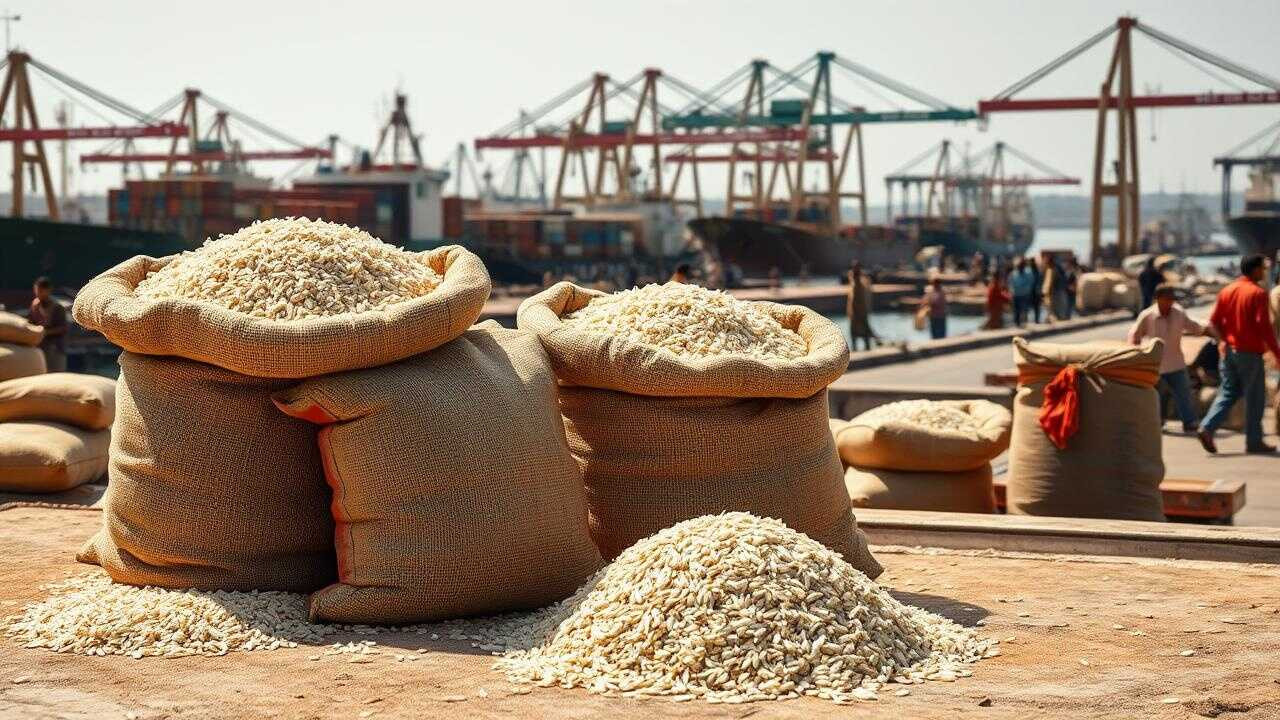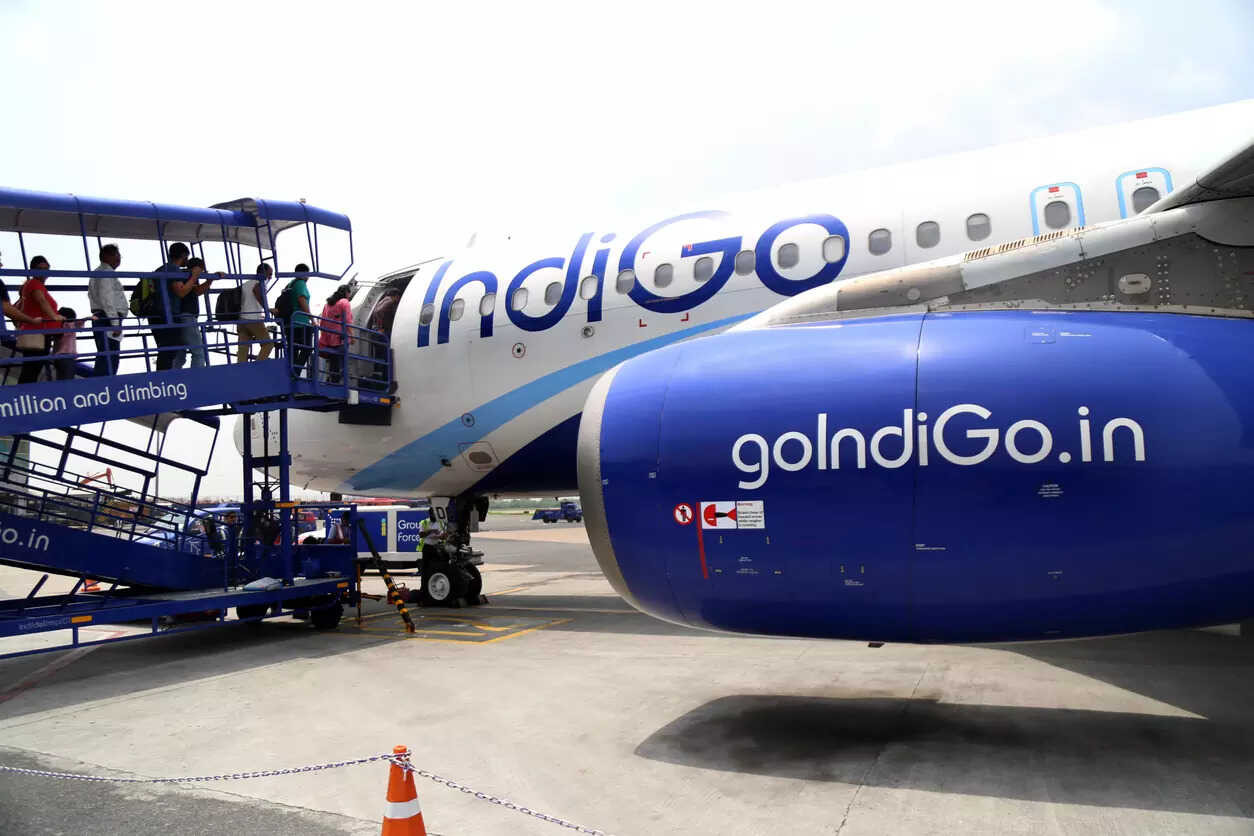Approximately 100,000 tonnes of basmati rice destined for Iran are stuck at Indian ports due to the Israel-Iran conflict, impacting India’s exports. This accounts for 18-20% of total basmati exports to Iran, causing shipping and insurance disruptions.
Rice Ripples: How Geopolitical Tensions Are Impacting Your Basmati
The aroma of perfectly cooked basmati rice is a staple in households across the globe. But recent geopolitical events are casting a shadow on this culinary delight, creating unexpected hurdles for Indian rice exporters and potentially influencing the price of your next biryani. The escalating tensions between Iran and Israel are causing significant disruptions, leaving shipments of this beloved grain stranded and futures uncertain.
The Basmati Backup: What’s Happening at the Ports?
Imagine a convoy of trucks, loaded with fragrant basmati rice, lined up, waiting for clearance. Now picture them stuck. That’s the reality facing Indian exporters right now. Around 100,000 tonnes of basmati, destined for Iranian plates, is currently held up at ports, a direct consequence of the escalating conflict. This sudden bottleneck isn’t just a logistical headache; it’s a financial strain on exporters who are now facing delayed payments and mounting storage costs.
The problem isn’t necessarily a ban on exports – it’s the uncertainty surrounding payment mechanisms and logistical routes in a region fraught with instability. Banks are hesitant to process transactions, and shipping companies are wary of navigating increasingly volatile waters. This hesitation translates to stagnation, leaving valuable cargo languishing and impacting the entire supply chain.
Why Iran? The Significance of the Iranian Basmati Market
Iran isn’t just another customer; it’s a crucial market for Indian basmati rice. It’s consistently one of the top importers, with a strong preference for the long-grain variety grown in the foothills of the Himalayas. This demand has fueled a thriving export industry in India, providing livelihoods for countless farmers and traders. The current disruption, therefore, has ramifications that extend far beyond the immediate concerns of delayed shipments. It threatens the economic stability of those involved in the basmati rice trade and raises questions about the long-term reliability of this vital export route.
Navigating the Uncertainty: What’s Next for Indian Exporters?
The Indian government and trade bodies are actively seeking solutions to break the logjam. Diplomatic channels are being explored to ensure the safe passage of existing shipments and to establish secure payment mechanisms for future transactions. One potential avenue involves exploring alternative payment methods that bypass traditional banking systems, offering a more resilient approach in the face of geopolitical instability.
However, the situation remains fluid, and the long-term impact is difficult to predict. Some experts suggest that exporters might look to diversify their markets, reducing their reliance on a single region. Exploring opportunities in other countries with a growing appetite for basmati rice could provide a buffer against future disruptions. This diversification could involve targeted marketing campaigns, tailored to specific regional preferences.
“`html

“`
The Consumer Connection: Will Your Rice Get More Expensive?
The big question on everyone’s mind: will this affect the price of basmati rice on supermarket shelves? While it’s too early to definitively say, the potential for price increases exists. Reduced supply, coupled with increased transportation costs and insurance premiums, could translate to higher prices for consumers. However, the extent of the impact will depend on how quickly the situation is resolved and whether exporters can find alternative markets for their product.
The situation underscores the interconnectedness of global events and the food on our tables. What happens thousands of miles away can ultimately influence the cost and availability of everyday staples.
Weathering the Storm: Resilience in the Face of Geopolitical Volatility
The current crisis serves as a stark reminder of the vulnerabilities inherent in global trade. The basmati rice industry, like many others, must adapt and build resilience in the face of geopolitical volatility. Diversification of markets, exploration of alternative payment systems, and proactive risk management strategies are crucial for ensuring the long-term sustainability of this vital sector. And on the consumer side, understanding the complexities of global supply chains can foster a greater appreciation for the journey of the food we eat.
Read more about global trade challenges and their impact on agriculture on our sister site, [AgriGlobal Insights](https://example.com/agri-global-insights).
Ultimately, the fate of the stranded basmati shipments and the future of Indian rice exports to Iran hinge on diplomatic efforts and the restoration of stability in the region. The industry is watching closely, hoping for a swift resolution that allows the flow of this essential grain to resume and prevents further disruption to the global market.







